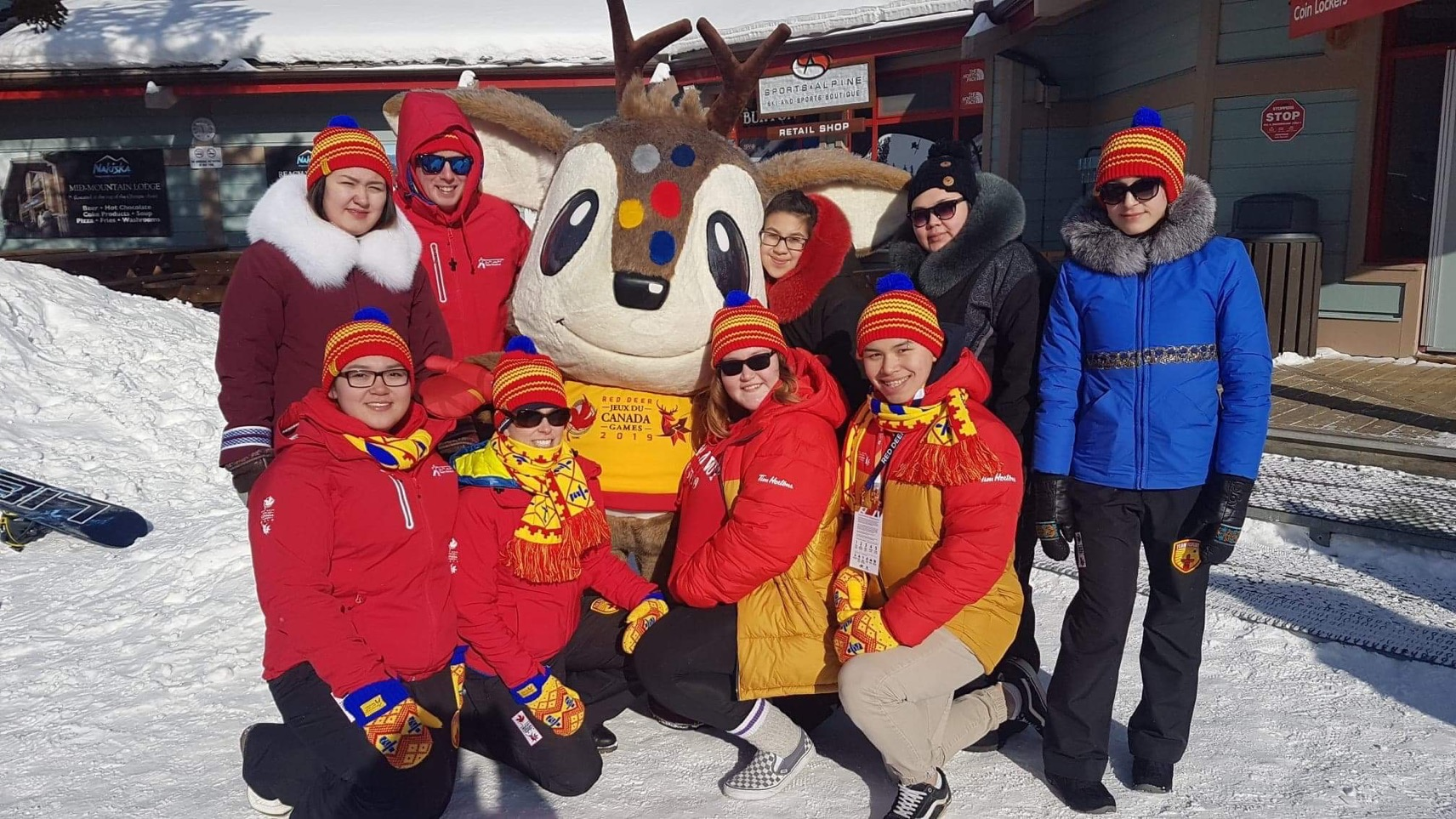Ryan Lahti, OISE Technology Adoption Consultant, debuts children’s book

Ryan Lahti has always been drawn to education and literacy.
Before joining OISE's Education Commons as a Technology Adoption Consultant, Lahti taught K-12 and at post-secondary for several years, where his classroom experience led him from Quebec to Nunavut. He served as a college instructor at the Nunavut Arctic College, and as an Adaptive Educational Technologist in accessibility services at the University of Waterloo. Before that, his parents are retired educators and all four of his postsecondary degrees are education-based.
Along the way, literacy became a big part of his teaching journey – particularly at Aqsarnitt Middle School in Nunavut, Iqaluit, where there was no library. And when he returned to Ontario from Nunavut, Lahti continued promoting literacy by writing teaching guides for educational resources.
“To be honest, I’m not sure how I’ve ended up in half of the places I have worked and lived,” laughs Lahti, the author of the new book, Davidee Goes to the Arctic Winter Games, which published in Nov. 2022. “I think part of it is connected to my educational background and experience as a teacher in k-12 and post-secondary.”
“As an educator, OISE has always been a place I've wanted to work and grow,” adds Lahti, who arrived at OISE in 2021. “UW is a very STEM-based institution, so making the switch just made sense (from my humble beginnings were as a physical education, Outdoor Ed and Math teacher!). I'm happy I joined the Education Commons team two years ago and haven't looked back since!”
Recently, working with Inhabit Education Books, a Nunavut-based educational publishing company, he wrote a Grade 5-level novel about a boy who travels from his home community to compete in the Arctic Winter Games.

Davidee Goes to the Arctic Winter Games is now available in English and Inuktitut from Inhabit and is available for pre-order from Barnes and Noble.
To learn more, OISE spoke with Lahti about his journey.
Davidee Goes to the Arctic Winter Games definitely speaks to something personal that you've experienced. In what way is that the case?
Firstly, I would like to start by saying I was contracted to write this book (a book about a boy who goes to the Arctic Winter Games). The story is loosely based on places I've lived, students I've taught, people I've worked with and some of my experiences in Nunavut. While the story is about the Arctic Winter Games, I took a group of Youth Ambassadors to the Canada Winter Games (Red Deer, Alberta, in 2019), a bigger stage and experience for the youth. The story initially takes place in a small, remote community, Naujaat, Nunavut (formerly Repulse Bay). This is the first arctic community I lived in, so the setting and descriptions are based around that community.
Why write and publish this story now?
I was contracted by a Nunavut-based educational publishing company to write the book. I believe they were looking for someone with experience as an educator in the territory and who has been to the Arctic Winter Games (or Canada Winter Games). There is a dire need for educational resources and literature that are Nunavut-specific as the territory is slowly transitioning to creating its own curriculum (for example high school students follow Alberta's curriculum).
What was the writing experience like? What was the key to executing a story that you were satisfied with?
The writing experience was very enjoyable. I was given a writing topic by the publisher (Arctic Winter Games), but it was up to me to write the story. I knew this book would be geared toward "R-level" readers (Fountas and Pinnell), and I was hoping this story would engage readers who are into hockey and curious about places outside of Nunavut. About 5 years ago, I secured a Love of Reading Grant from Indigo (for $55,000) to build a new library/reading centre in my school. Even when the writing got challenging, I kept thinking, “Maybe one day this will be in a classroom in Nunavut somewhere...”
What do you want young (and old) readers to takeaway from reading this book?
Firstly, I hope people enjoy reading this book. This book focuses on the smaller Nunavut communities and what it's like to play sports in the arctic. This is a true underdog story, so I would like this story to give hope to anyone who's been cut from a team or feels like they don't belong. I hope educators in Nunavut (and outside) can use this book to get students hooked on reading.
Is your connection to Nunavut and Inuktitut stronger than ever now?
It’s been a few years since I left Nunavut, but I still have many friends and connections. While writing this story, I revisited some old photos and videos from my time in the North, which reignited my relationship with Nunavut.